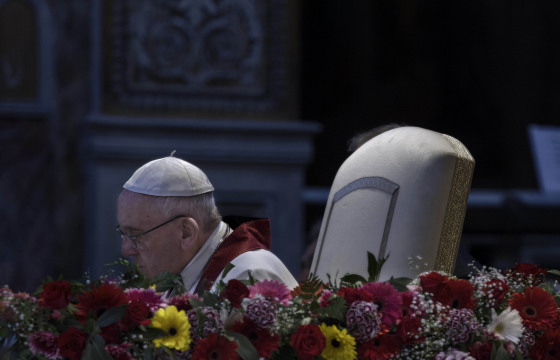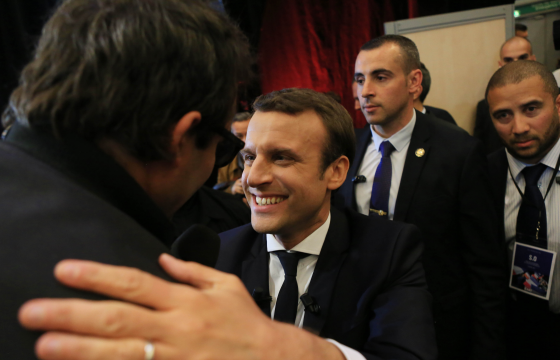On the evening of Emmanuel Macron’s victory in the first round of France’s presidential election, the French bishops’ conferences issued a guidance note for Catholic voters that — while not naming candidates or parties — can only be read as an argument against his second-round opponent Marine Le Pen.
The message recalled the basics of Catholic social teaching and urged Catholics to welcome refugees, respect the environment and support European unity. “Today, the main risk would be to give up fighting for the future and give in to the temptation of fatalism,” it concluded. “Our Christian faith calls us to hope.”
Since Macron began running last November, the dynamic centrist newcomer — who is only 39 years old — has embodied a can-do hope in a future based in Europe. He scored best in the cities and more prosperous regions of western and southwestern France.
By contrast, Le Pen, head of the far-right National Front, represents a resentful France opposed to immigration, Europe and globalisation and focused on national solutions. Her support was stronger in the rust belt north and east and in the southeast. Macron won an impressive 23.9 per cent of the vote last Sunday ahead of Le Pen at 21.4 per cent, slightly less than expected. Conservative François Fillon, the frontrunner early this year before financial scandals stymied his campaign, was third at 19.9 per cent and far-left Jean-Luc Melenchon close behind at 19.6 per cent.
The miserable 6.3 per cent result for Socialist candidate Benoit Hamon reflected both the deep unpopularity of outgoing President François Hollande and widespread voter rejection of the two large parties that have headed French governments since the Fifth Republic was founded in 1958. Initial polls for the second round on 7 May give Macron 62 per cent of the vote, but Le Pen could tilt the balance to win more than the 38 per cent she registered.
Macron, who comes from a medical family in Amiens, attended a Jesuit secondary school there and decided to be baptised at 12 years old. He says spirituality influences his thinking but he is an occasional churchgoer. He studied philosophy, graduated from the elite ENA school of administration and worked at the finance ministry and Rothschild bank before going into politics, first as an aide to President François Hollande, then as his economics minister.
Macron is a social liberal who accepts the legalisation of same-sex marriage without making it a central policy. He takes a moderate line on France’s policy of laicite, upholding it refusing to “make a secular religion out of it,” as he says.
That contrasts with Le Pen, who would roll back gay marriage and tighten "laicite" policies separating church and state, mostly to push back against Muslim demands for more public recognition of their religion.
While Macron has the advantage, Le Pen could still present a strong challenge if enough disappointed voters on both the left and right abstain or vote for her. While most mainstream parties promptly lined up behind Macron, far-left Melenchon and Common Sense — the conservative network behind Fillon — held off from endorsing him.
In this long-shot strategy, Le Pen could sweep up votes on the right and left among groups as diverse as social conservatives, eurosceptics of all stripes and far-leftists allergic to his banking background.
PICTURE - Centrist candidate in the French presidential elections Emmanuel Macron is congratulated by supporters in Paris after the election result was announced




 Loading ...
Loading ...